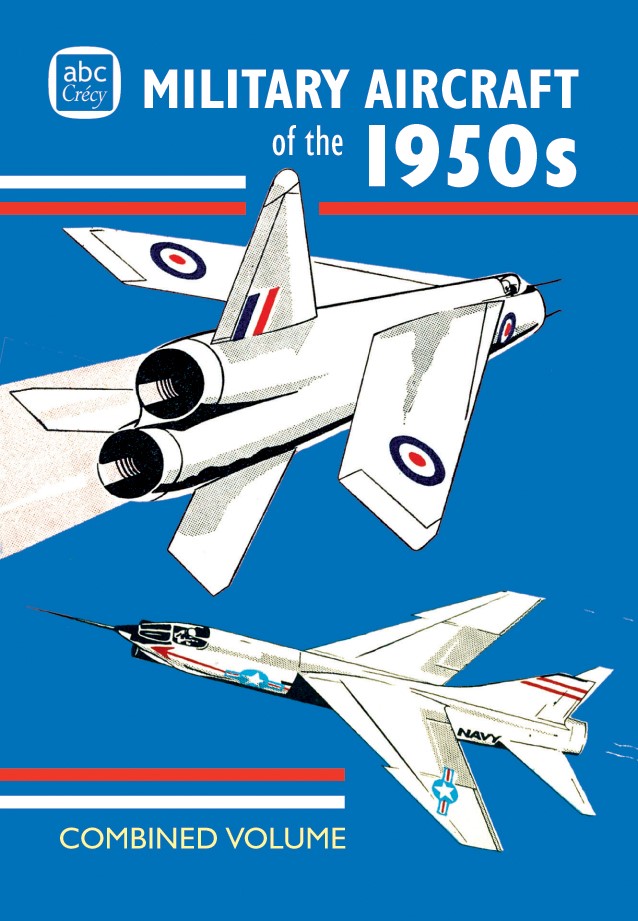Home > All Titles > November New Releases > abc Military Aircraft of the 1950’s Combined Volumne

For many people, the 1950s was the golden era of military aircraft development, and a time when the world’s air forces boasted probably the most varied and eclectic fleet of aircraft ever seen in peacetime. Aircraft in active military service ranged from a few left-over World War Two designs, through first generation jets and 1940’s re-purposed aircraft, to new machines at the cutting edge of aerospace technology, some of which would continue in service for decades to come.
The UK armed forces alone were operating more than 100 types of aircraft, many of them produced by domestic aviation manufacturers. The US and Canada were also fielding a wide variety of military aircraft and starting to push the boundaries of speed and altitude capabilities. In continental Europe it seemed that almost every country had its own indigenous military aircraft; whilst rumours and speculation were rife about the latest aerospace advances by the USSR.
The 1950s also saw the rise of the ‘abc’ range of books by Ian Allan. Originally started as a series of ‘spotters guides’ for railway enthusiasts wanting to record the identities of steam locomotives, the series grew to encompass hundreds of titles on subjects as diverse as ships, military vehicles, motorcycles, space travel and, of course, aircraft. Each abc book contained the known data and specifications for each aircraft type, together with a short description, three view drawing and
photograph. In an era when public information on military aircraft types was often in short supply, the abc guides were the acknowledged reference source for enthusiasts, aviation professionals and even the military themselves!
The original abc books have become highly-prized collectors items, but to bring their contents to a wider audience Crécy Publishing has delved into its extensive Ian Allan archives and produced this compilation of several abc titles from the mid-1950s. Covering military aircraft from Britain, the USA, Canada, Continental Europe and even the USSR, the types covered range from the famous and legendary, to experimental one-offs and rare designs which were destined for obscurity or even notoriety.
For many, this book will be pure nostalgia for a lost era of classic military aviation; but it is also an important historical record of its time, highlighting the contrast between the break-neck pace of military aircraft development for the front-line, alongside the classic wartime aircraft still to be found operating in many parts of the world.